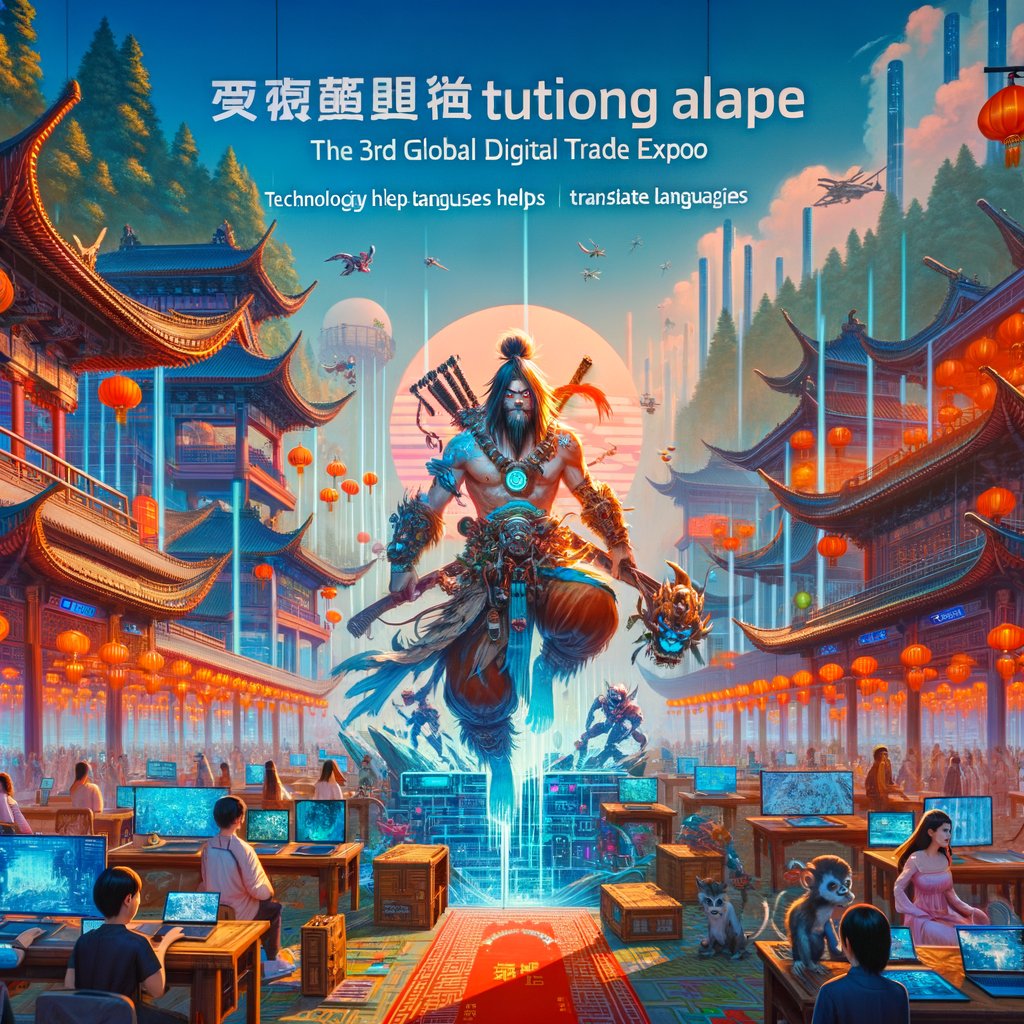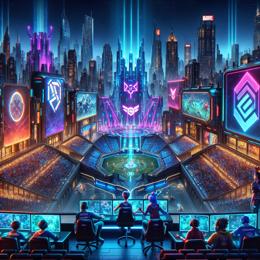Image created by AI
Chinese Video Game 'Black Myth: Wukong' Dominates Global Market, Expanding Digital Influence of Chinese Culture
At the third Global Digital Trade Expo in Hangzhou, a surge of international gamers clad like Sun Wukong from “Black Myth: Wukong” showcases China’s growing influence in the global gaming industry. Developed by Chinese studios, "Black Myth: Wukong" is the nation’s first major foray into the AAA gaming market, becoming a sensation with over 10 million copies sold shortly after launching.
Based on the beloved "Journey to the West," the game not only entertains but also masterfully interweaves Chinese folklore and aesthetics, enchanting players worldwide. As they navigate through legendary tales in high definition, users are also exposed to a cultural journey that echoes beyond the digital realm, translating to an increased interest in Chinese culture-based entertainment and tourism.
China's burgeoning digital industry, amassing revenues of 32.5 trillion yuan in 2023, has proven its potency as a cultural ambassador, bolstering the global reach and availability of Chinese digital content. According to industry analysts, digitalization has revolutionized how cultures communicate, fostering a seamless cross-cultural dialogue through interactive media such as video games, which transcend geographical and temporal barriers.
This cultural propagation is further backed by technological advancements, with the gaming industry employing artificial intelligence for language translation, removing barriers and enhancing the appeal of Chinese narratives like Sun Wukong's across various linguistic demographics.
Corroborating this cultural triumph, the 1982 television adaption of "Journey to the West" saw a resurgence in international viewership, with new fans springing from the gaming community's curiosity about the Monkey King's saga. Tencent's editor-in-chief, Zhu Dianjun, vitally noted this uptick as evidence of gaming's ability to renew interest in traditional Chinese literature and media.
Striking at a crucial juncture, the Beijing Culture Forum's (BCF) salon on traditional culture in emerging spaces highlighted the synergy of intangible cultural heritage with modern technology. Feng Ji, the game’s producer, emphasized the necessity for such heritage to adapt to contemporary mediums, ensuring that ancient wisdom remains relevant and cherished.
Moreover, the BCF saw the launch of a pivotal strategic cooperation platform designed to integrate cultural, tourism, and gaming industries from 10 provinces and municipalities. This initiative is poised to amplify Chinese animation and gaming IPs on the international market, according to Liu Chungang of the Beijing Animation and Game Industry Alliance.
Reflecting on the trend of Chinese games going global since 2012 with titles like "Goddess Alliance," BlueVision Interactive's Frank Feng disclosed that major releases have achieved staggering revenue milestones, further cementing China's position in the global market. In response to the ebb in the international gaming market in 2023, Chinese companies are now focusing on technological innovations and expanding genre variety to maintain a competitive edge.
Fan Di’an, chairman of China Artists Association, encapsulated the narrative by highlighting video games' cultural and artistic significance. Emphasizing the medium's potential for youth engagement, Fan advocated for a more creative and traditional aesthetic integration to solidify China's global digital influence in the arts.










